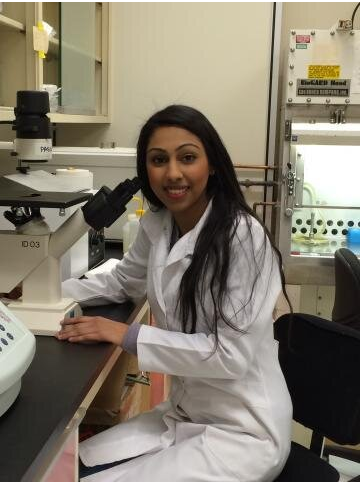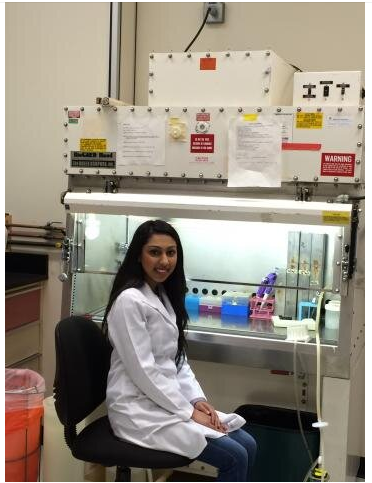Mentor Spotlight: Amarjot Padda
Amarjot Padda used to think second-year university students couldn’t contribute to experimental cancer research.
As a biology student at the University of Alberta, Amarjot was searching for a way to make a difference. “I wanted to be part of the process of discovery, and add to the things we were learning about in our biology classes,” she shares. “Cancer research was especially important to me, because cancer affects everyone – patients, friends, families, the whole community.”
Then Amarjot learned of a research opportunity in Dr. Pasdar’s lab, an experimental oncology researcher at the University of Alberta. Despite all of her drive, she hesitated.
“I was very unsure about the idea of doing research,” Amarjot admits. “Although I knew it would be interesting and exciting, I wasn’t sure how to go about it.” Luckily, Amarjot was encouraged by other students, who had done their own research projects. And she gave it a shot.
“The first day in the lab was very exciting, but overwhelming,” recalls Amarjot. “The lab was bustling with energy, and it was difficult to keep up with all the different experiments I was shown.”
Slowly but surely, Amarjot’s confidence grew. “My supervisor was very supportive, and always spent time personally teaching me various techniques, and helping me overcome roadblocks in my project. Before I knew it, I could do all the experiments with the same ease as the other lab members. And my research was fascinating,” says Amarjot.
Her research involved a protein called p53, which can help suppress tumors. But in half of human cancers, p53 is inactivated. Another protein, called plakoglobin, can restore activity to p53.
“Plakoglobin doesn’t always restore activity to p53 naturally – likely because it’s not always accessible. My research was looking at how these two proteins interact,” Amarjot explains.
Amarjot worked on her research project until the end of her B.Sc. degree, which she is finishing this month. New students are continuing Amarjot’s research in Dr. Pasdar’s lab, and once verified, the results will be published.
“Research has been a very exciting experience for me over the last few years. A successful experiment, or obtaining a clear result, is thrilling. It makes me feel very accomplished,” says Amarjot. “The experience has taught me problem solving and time management skills, as well as to be patient and continue working hard, even when your experiments don’t work out exactly as planned.”
Amarjot’s journey is just getting started. She has applied for medical school, and plans to pursue a career involving cancer research.


